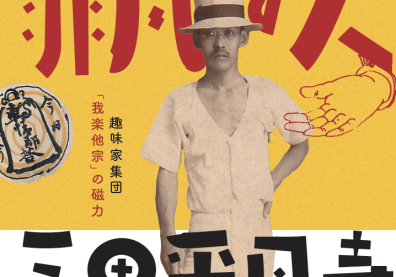我楽他宗 Networks of enjoyment – role of transnational gatherings in interwar Japan

Interwar Japan is often portrayed as a rapidly industrialized international landscape buzzing with avant-garde artistic activity. Yet, the contact and exchange between the Japanese artistic communities and study groups and the non-Japanese artists visiting or residing in Japan was still quite limited. In this talk we explore a couple of networks that were the rare exceptions: the Theosophical society’s lodges that were established as international exchange hubs and Garakutashū. Garakutashū network was founded by designer and poet Mita Heibonji in the margins of Tokyo near Shinagawa in 1919. As evidenced in the network’s numerous publications, the members met frequently to study and enjoy traditional Japanese arts as well as to discuss contemporary topics from fields of philosophy, religion and literature. The most extraordinary feature of Garakutashū was that it was open to women and foreigners alike; simply put, it was a club that many of us would like to join today.